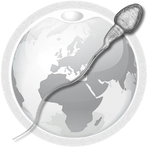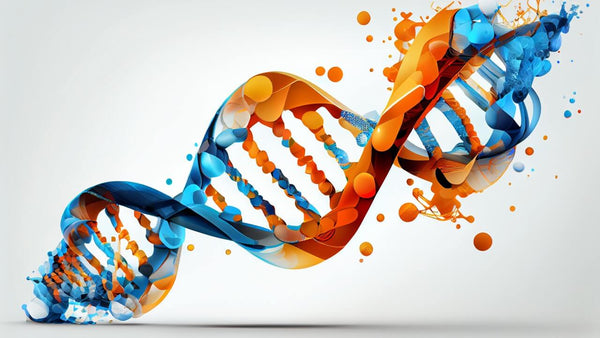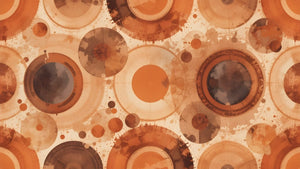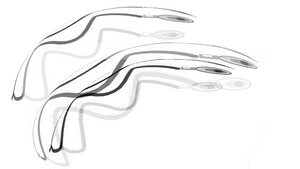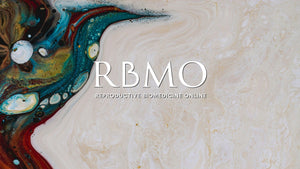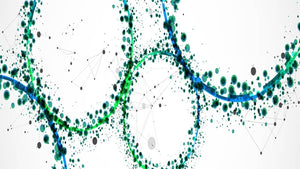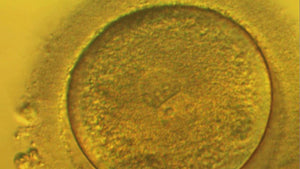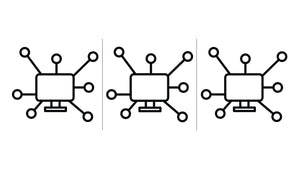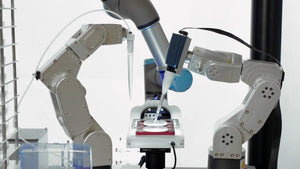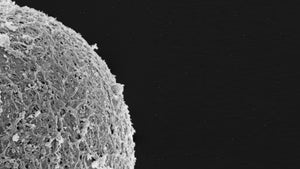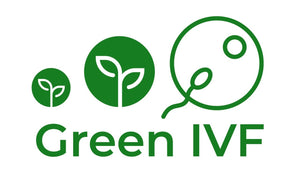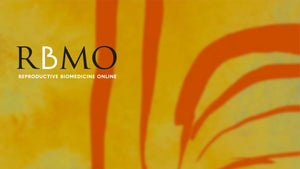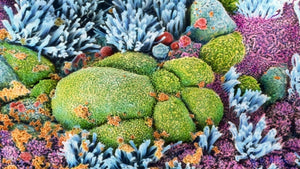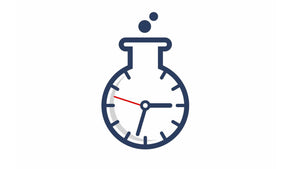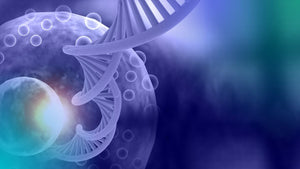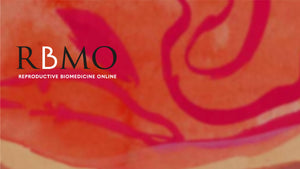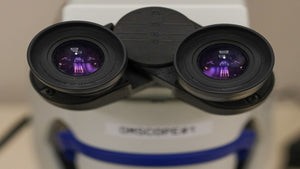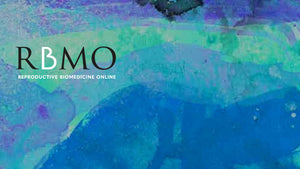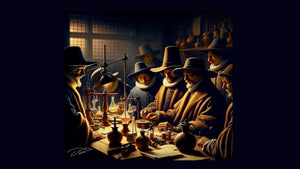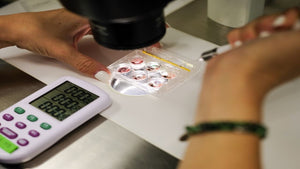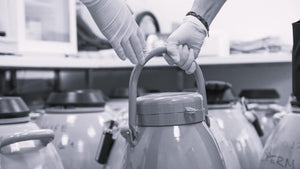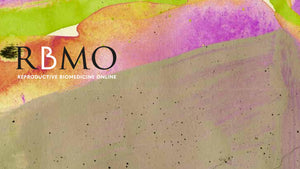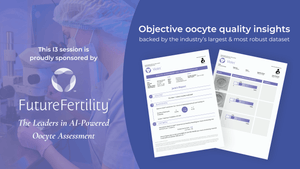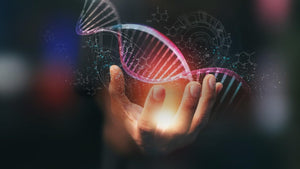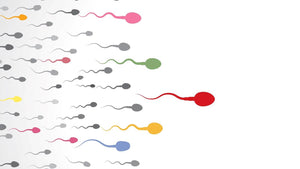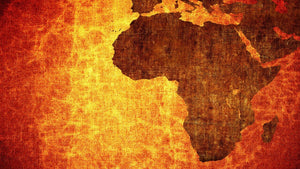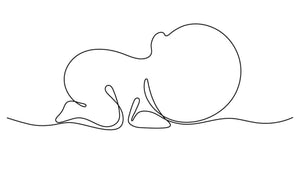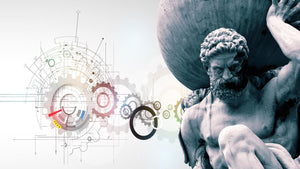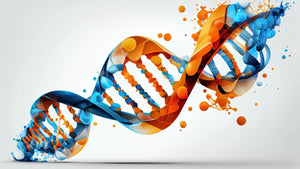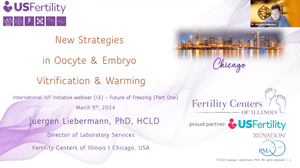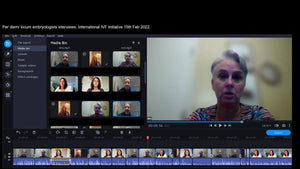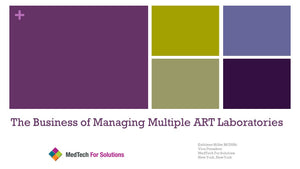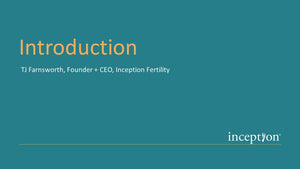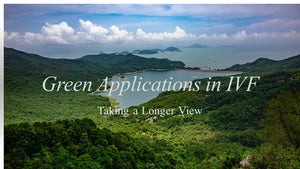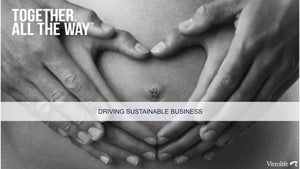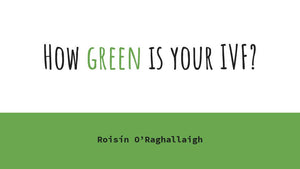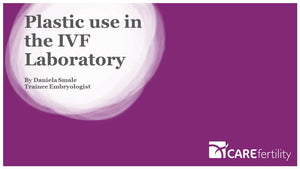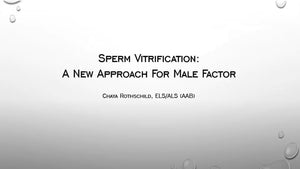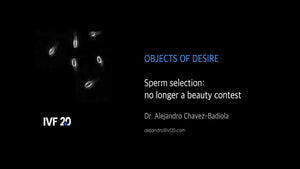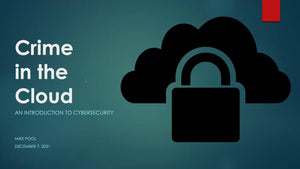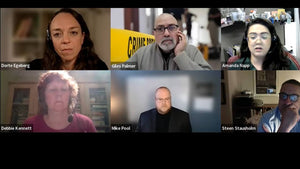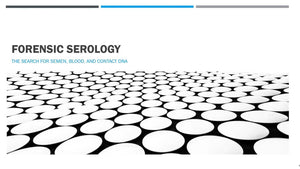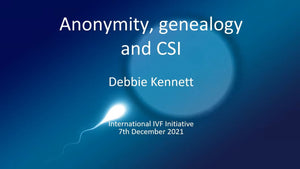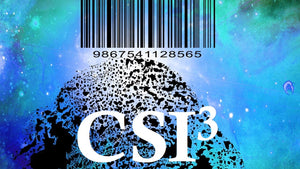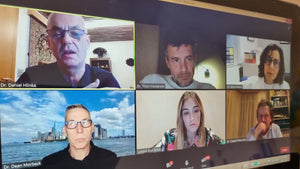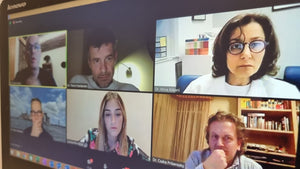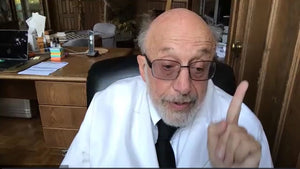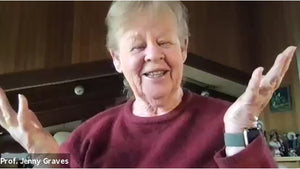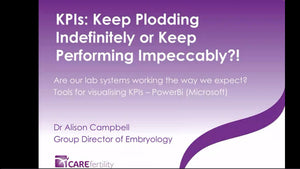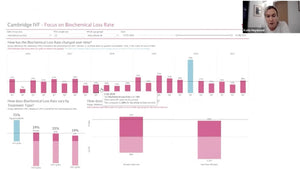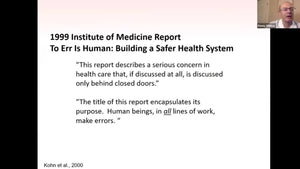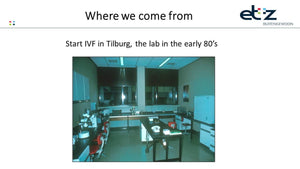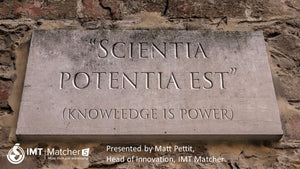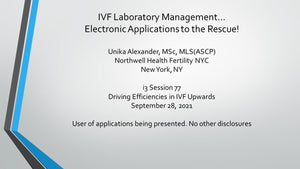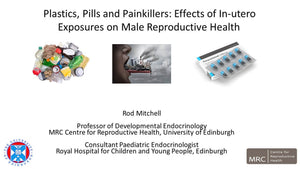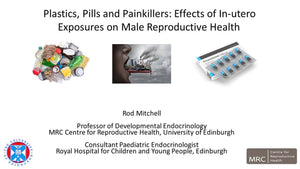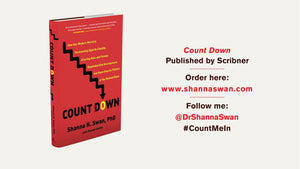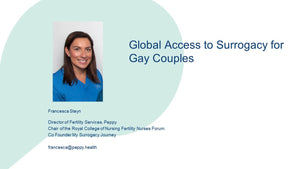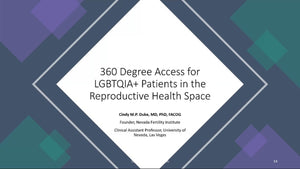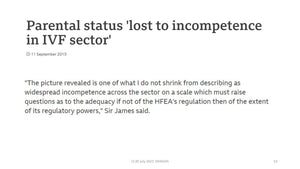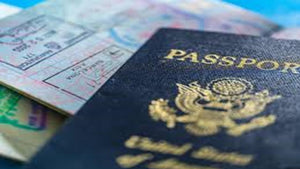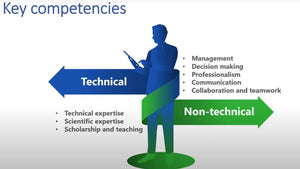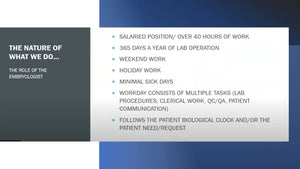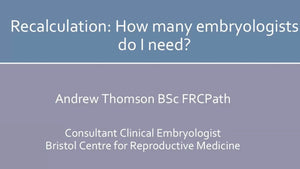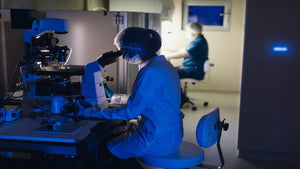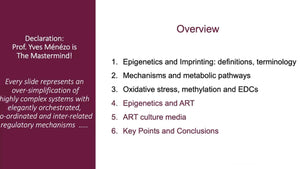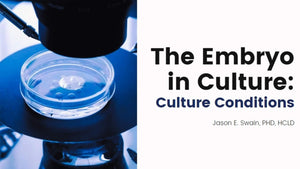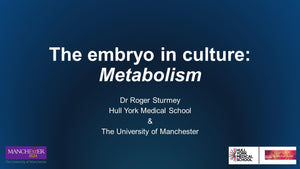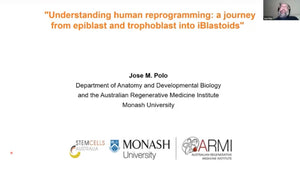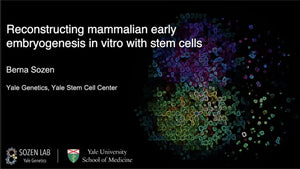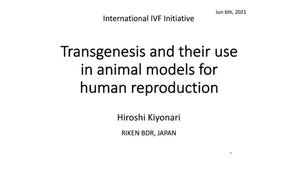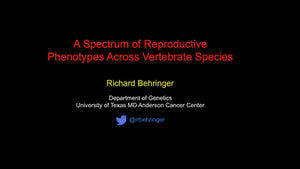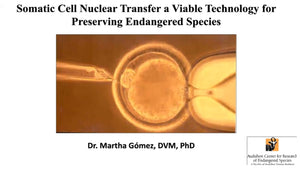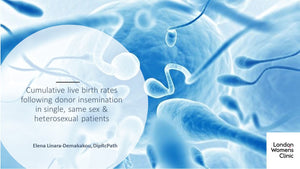Session 119: Weird Science

Donate
At the International IVF Initiative, we are committed to providing free access to our educational sessions, webinars, and resources for professionals and individuals passionate about advancing reproductive medicine. We believe that cost should never be a barrier to knowledge and collaboration. By contributing, you’re ensuring that valuable educational resources, expert insights, and collaborative opportunities remain open to all without financial barriers. Together, we can continue to foster a global community dedicated to innovation and excellence in the field of IVF.
Your Donation
Thank you!
Session 119: Weird Science
Description: International IVF Initiative(I3)- Online Session 119 : Weird Science [101 minutes] Date: Tuesday, 13th June (3 pm EST / 8 pm UK / 9 pm CET)
Synopsis:
The webinar on comparative animal physiology brought together reproductive biologists from the animal and human worlds to explore unique reproductive mechanisms and strategies found in various animal species. The session aimed to highlight the importance of studying animal physiology to gain valuable insights and learn important lessons that can enhance our understanding and treatment of human fertility issues.
The webinar was moderated by Dr. Liesl Nel Themaat and Dr. Pierre Comizzoli, with Dr. Mitch Schiewe as the guest panelist, drawing on his extensive experience. Each speaker discussed the weirdest reproductive physiology they have encountered in different animal species.
Liesl Nel Themaat focused on the reproductive physiology of hyenas, known for their complex social structures and unique reproductive system. Dr. Pierre Comizzoli discussed the reproductive physiology of pandas, highlighting the challenges faced in captive breeding programs. Professor Evelyn Telfer shared insights into the reproductive physiology of naked mole rats, which exhibit fascinating social and reproductive behaviours. Professor Jenny Graves explored the topic of weird sex chromosomes in nature, shedding light on the diversity and complexity of sex determination systems. Professor Bruce Murphy discussed embryonic diapause, a phenomenon observed in various animal species where embryo development is temporarily halted. Dr. Don Riegers presented on the reproductive physiology of horses, highlighting their unique reproductive mechanisms. Lastly, Professor Maurizio Zuccotti discussed the ovaries of armadillos, providing insights into their reproductive physiology.
The speakers emphasized the importance of studying and understanding the unique reproductive mechanisms of animals. By exploring and comparing these diverse reproductive systems, scientists and medical professionals can uncover novel approaches and innovative techniques that may improve our understanding and treatment of human fertility issues. The webinar aimed to broaden perspectives, discover new interventions, and enhance the success rates and outcomes of assisted reproductive technologies in humans.
The session concluded with a Q&A segment, allowing the audience to engage with the panelists and further explore the fascinating topics discussed during the webinar.
Overall, the webinar highlighted the significance of comparative animal physiology in advancing our knowledge and improving reproductive outcomes in both animal and human populations.
Moderators:
Dr. Liesl Nel Themaat and Dr. Pierre Comizzoli
with Dr. Mitch Schiewe
Presenting:
“The animal with the weirdest reproductive physiology that I have ever encountered”.
Professor Evelyn Telfer
Professor Jenny Graves
Professor Bruce Murphy
Dr. Don Riegers
Professor Maurizio Zuccotti
Q and A
DR. LIESL NEL-THEMAAT
Liesl Nel-Themaat, Ph.D., HCLD, is a certified High-complexity Clinical Laboratory Director and Technical Supervisor with a specialty in Embryology by the American Board of Bioanalysis.
She earned her undergraduate degree in agriculture (physiology and biochemistry) from the University of Stellenbosch. As her next move, Dr. Nel-Themaat left her native South Africa to pursue her Doctor of Philosophy in animal reproductive physiology from Louisiana State University. During her Doctoral studies, Dr. Nel-Themaat was a Graduate Research Assistant for the Audubon Center for Research of Endangered Species where she worked in assisted reproductive technologies in various exotic species. Her research included intergeneric nuclear transfer cloning for use in conservation and she managed the Frozen Zoo biomaterials resource bank, a collection of cell lines from endangered species as an insurance against extinction. After graduating with her Ph.D., Dr. Nel-Themaat did a postdoctoral fellowship and MD Anderson Cancer Center in Houston, TX, where she continued her studies of the reproductive system using transgenic animal models.
All her zoology-based groundwork laid the foundation for Dr. Nel-Themaat’s expertise in embryology, andrology, and endocrinology. Since joining the University of Colorado Advanced Reproductive Medicine in 2017, she has not only been a key player in all lab activities, but also participates as faculty for the REI Fellowship Program.
Over the course of her career, Dr. Nel-Themaat has contributed to dozens of professional publications, covering topics such as development of new technologies for use in the reproductive lab, cryopreservation of sperm, embryos and eggs, in vitro fertilization (IVF), and diminished ovarian reserve. She is an active member of professional organizations including the American Board of Bioanalysis (ABB), American Society for Reproductive Medicine (ASRM), Colorado Association of Reproductive Technologists, College of Reproductive Biologists (CRB), and the Society of Reproductive Biologists and Technologists where she is the president. Dr. Nel-Themaat is among the founding members of the International IVF Initiative (i3), a non-profit global educational project for the Assisted Reproductive Technologies (ART) community.
Dr. Nel-Themaat was formally the IVF Lab Director for SGF Colorado and now IVF Lab Director and Associate Clinical Professor at Stanford University, California. When she is not overseeing the labs, you can find Dr. Nel-Themaat outdoors running, snowboarding, mountain biking, and scuba diving. She has also recently completed her Executive MBA.
DR. PIERRE COMIZZOLI
Pierre Comizzoli started his career more than 25 years ago as a research veterinarian South America and Africa. He then completed a PhD in 2000 on in vitro fertilization in bovine and deer species. In 2002, he joined the Smithsonian Conservation Biology Institute in Washington, DC to develop new cryo-banking projects on gametes and gonadal tissues from rare and endangered species. This also includes the coordination of reproductive monitoring and artificial inseminations in different species (including giant pandas, clouded leopards, or Eld’s deer). He is leading since 2007 a Smithsonian-wide initiative to improve the management and use of frozen biomaterial collections within the Institution.
PROF. EVELYN E TELFER
Professor Evelyn Telfer holds a chair in Reproductive Biology at the University of Edinburgh. She heads a research group in Ovarian Development with a particular interest in developing in vitro models to support oocyte development from immature stages in domestic species and human. Evelyn’s group has developed a culture system that supports in vitro growth of human and bovine primordial follicles to the Metaphase II stage. They are now using these models to study the potential of female germ line stem cells isolated from adult ovaries in a range of species.
Evelyn is a regular invited speaker at International meetings, she has several international collaborations and her research is funded by the Medical Research Council U.K. and The Wellcome Trust. Her group has won several awards at international meetings and in 2019 she received the distinguished scientist award from the Society of Reproduction and Fertility. Evelyn also has an interest in the Public understanding of science and contributes to workshops and delivers lectures at science festivals and other public forums. Evelyn was appointed Commander of the Order of the British Empire (CBE) in the Queen’s Birthday Honours 2021 for services to female reproductive biology and in 2022 was named the prestigious Marshall Medal awardee by the Society for Reproduction and Fertility.
PROF. JENNY GRAVES
Jenny Graves is an evolutionary geneticist who exploits our distant relationship to Australian animals to discover how animal genes and chromosomes evolved, and how they work. She uses this unique perspective to explore the origin, function and fate of human sex genes and chromosomes, (in)famously predicting the disappearance of the Y chromosome.
Jenny studied at Adelaide University (BSc, MSc) and the University of California Berkeley (PhD). She lectured at La Trobe University, then at ANU she founded and directed the Comparative Genomics Group and an ARC Centre of Excellence. She returned to La Trobe as Distinguished Professor and Vice Chancellor’s Fellow.
Jenny has produced three books and more than 400 research articles. She received the international L’Oreal-UNESCO prize (2006), an Order of Australia (2010) and the Prime Minister’s Prize for Science (2017). She was elected to the Australian Academy of Science (1999), and the US National Academy of Science (2019).
.
PROF. BRUCE MURPHY
Dr. Bruce D. Murphy earned his BSc (Biology) and MSc (Physiology) at Colorado State University. He was awarded a PhD in reproductive biology (University of Saskatchewan), where he continued on the Biology faculty. In 1985 he founded the Reproductive Biology Research Unit in the Department Obstetrics and Gynecology, College of Medicine and served as Director until 1991. From 1991 to 2013 he was Director of the Centre de recherche en reproduction, Université de Montréal where he currently holds a joint appointment Département de obstetrique-gynecologie, Faculté de médecine. He has held visiting appointments at Cornell University, and at the Institute of Genetics, Cellular and Molecular Biology, Louis Pasteur University, Strasbourg, France and the School of Biosciences, University of Melbourne. He founded the Réseau Québécois en Reproduction (Quebec Reproduction Network, RQR) that is currently funded by federal and provincial grants. This network coordinates collaborations, sponsors symposia and provides training funds to 80 researchers in the province of Quebec. He was founder of the Canadian Consortium in Reproductive Biology,and chaired of the Institute of Human Development Advisory Board and Standing Committee in Reproductive Biology. He was Treasurer of the Society for the Study of Reproduction (SSR) 2000-2009, and served as President of that Society in 2015-2016. He is on the editorial board of five journals and served as Editor-In-Chief of Biology of Reproduction, 2009-2013. Dr. Murphy’s laboratory has been continuously funded since he began as an independent investigator for studies of diapause and embryo implantation and for investigation of ovarian function. He is author of more than 250 scientific publications on these topics and has been a plenary and symposium lecturer at several international conferences. Among the awards he has received are the SSR Distinguished Service Award, the Pfizer Award for Research Excellence and the CFAS Award for Excellence in Reproductive Medicine. He received the SSR Trainee-mentoring award and the CRCQ Mentor of the Year award in 2014. He was elected to the Argentine Academy of Agricultural Science in 1988, as a Fellow of the Canadian Academy of Health Sciences in 2006, and is Laureate of the Fonds du Québec (2009). He has trained more than 60 graduate students and postdoctoral fellows, most of whom continue working in the field of reproductive biology.DR. DON RIEGER
Don Rieger completed his B.Sc. (1977) Ph.D. (1982), both at the University of Saskatchewan. He then moved to the CRRA, Université de Montréal, as post-doctoral fellow, and then as chercheur adjoint, where he studied the energy metabolism of individual pre-implantation embryos, and the peri-ovulatory endocrinology of superovulation. In 1988, he moved to ABEL, University of Guelph as an Assistant Professor (Research). He has been an invited scientist at the Università degli Studi di Milano, AgResearch (New Zealand), University College Dublin, Université Catholique de Louvain, University of Melbourne, University of Wisconsin, and INRA, Nouzilly.
In 2003, he joined LifeGlobal LLC, as Director of Research, and then as Vice-president, Research and Development until retiring in 2018. He oversaw the research, development, and evaluation of media and other products for human ART.
He was the organizer of the ICAR Workshop on Diagnostic Tools for Gametes and Embryos, member of the Program Advisory Committee, CIHR Training Program in Reproduction, Early Development, and the Impact on Health, invited contributor to the report of the Canadian Royal Commission on New Reproductive Technologies, and founder of Embryo-Mail.
Don is now a consultant in Reproductive Biology..
PROF. MAURIZIO ZUCCOTTI
Maurizio Zuccotti is an embryologist at the University of Pavia, Italy, where he is full professor of Developmental Biology. His research focuses on the identification of the cellular and molecular factors that during oogenesis contribute to the acquisition of the mammalian oocyte's developmental competence. Thanks to an interdisciplinary approach based on tomographic and optical imaging, correlative microscopy, histochemical and molecular biology tools (e.g., spatial transcriptomics), machine and deep learning, he is dedicated to build a 4D digital model of the ovary from homeostasis to dysfunction.
He is coordinator, with Dr. Danilo Cimadomo, of a Master course in 'Biology and Biotechnology of Reproduction: from research to the clinic' organised together with GeneraLife.
